Leonardo Da Vinci was once in the unenviable position of looking for a job. This seems strange for the man who produced the Mona Lisa and designed the helicopter before the helicopter existed, but it’s true. In 1482, Leonardo penned his resumé to apply for a position in the court of Ludovico il Moro, as a designer of armouries. Needless to say he got the job. 600 years or so later, we are still using the CV to outline our capabilities for a job.
In an era where we post real time updates about what we are eating for dinner, we still rely on an A4 piece of paper to outline credentials and give insight into our personality.
For young people fresh out of education, the problem is worse. CVs provide insight into your capability to perform a job when there’s a string of previous, similar, examples. If you’re applying to become a salesperson, it helps if you’ve done the job before. This is the “experience dilemma”. Employers look for people with experience, but you cannot get that experience until you have been given an opportunity. It’s a vicious cycle.
When employers hire for entry level roles, they use proxies to ascertain capability. Good exam grades might display diligence, aptitude and perseverance. Interest in sports might indicate a vibrant, outgoing personality. A history of volunteering could mean an empathetic and caring person.
These assumptions may prove to be correct, yet they might be wide of the mark. We’ve all heard the stories of straight-A students who can’t answer the phone, or a student without 2 GCSEs to rub together being a crash-hot salesperson. How would you know this by looking at a flat, uninspiring CV?
At Kloodle, we want to bring skills, character and personality to life for young people looking for opportunities. To this end, we’ve developed the ability to create a shareable version of your Kloodle profile. This version of your Kloodle profile contains all the elements you would expect to see as part of a CV, coupled with a powerful stream of skills posts showing your capabilities far more effectively than a CV ever would.
To create a shareable profile out of your Kloodle profile, log in to your usual account.
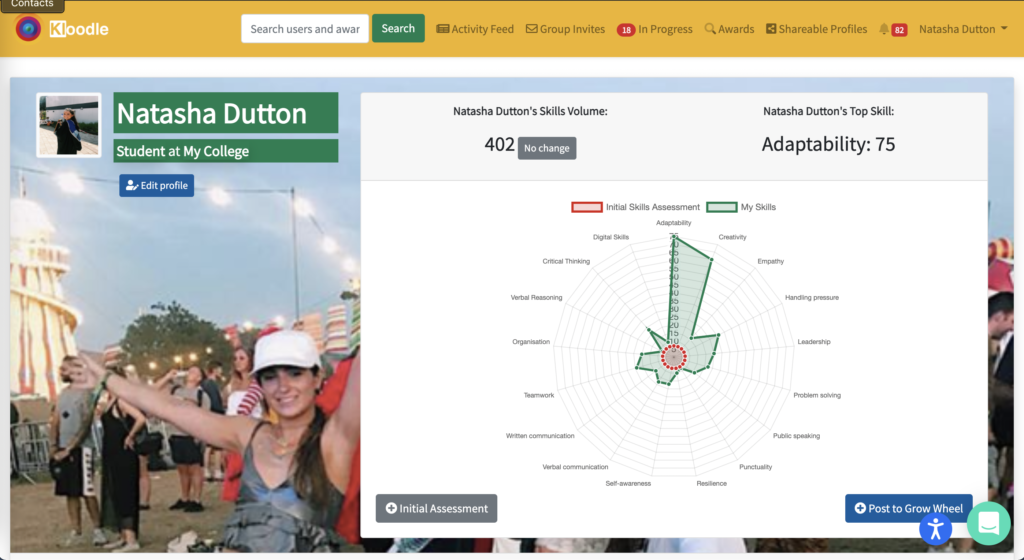
Click the Shareable Profile link at the top of the page.
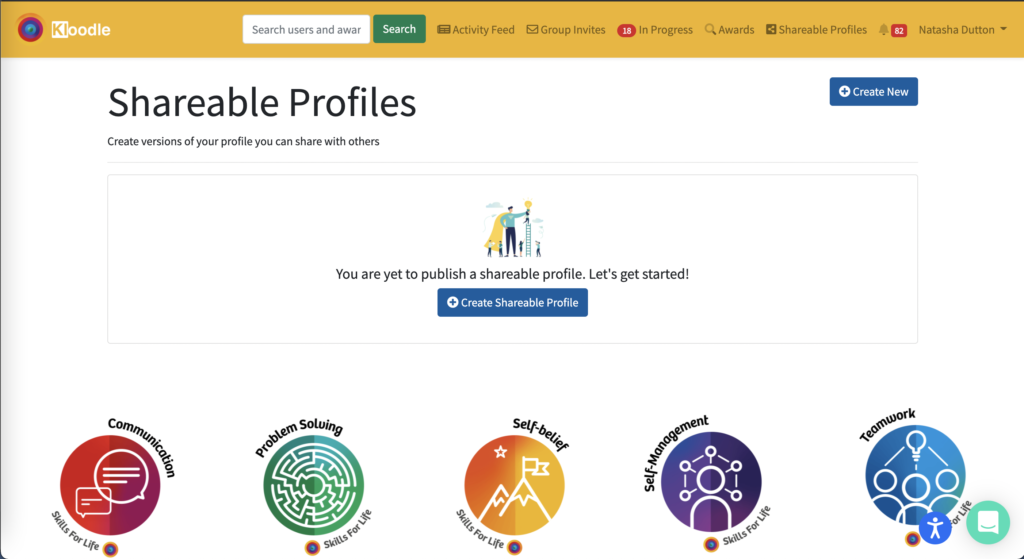
Click “Create New”.
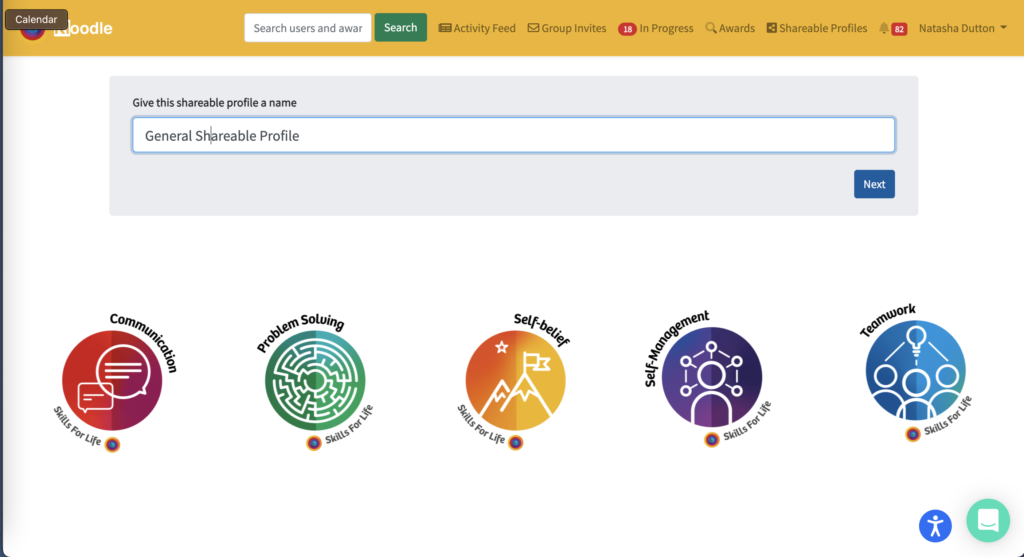
Give your shareable profile a name. You might end up creating multiple versions of this profile with different combinations of posts. Providing a name will help you differentiate between your public profiles.
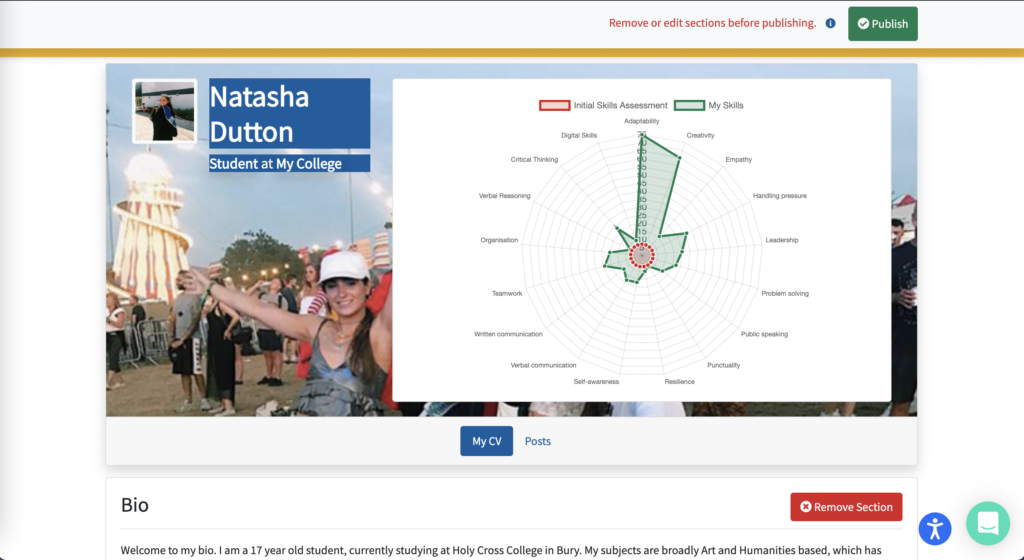 Click “Next”. You will then be presented with a version of your profile with a new option: next to each item of content is a red cross. This will enable you to remove elements of your profile you don’t wish to share.
Click “Next”. You will then be presented with a version of your profile with a new option: next to each item of content is a red cross. This will enable you to remove elements of your profile you don’t wish to share.
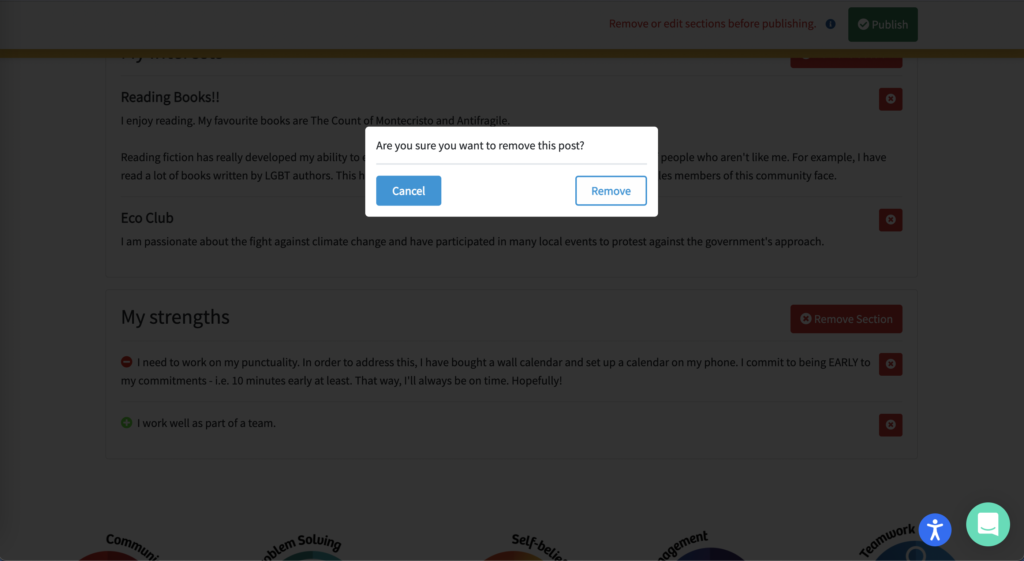 Go through your CV section and remove unwanted elements.
Go through your CV section and remove unwanted elements.
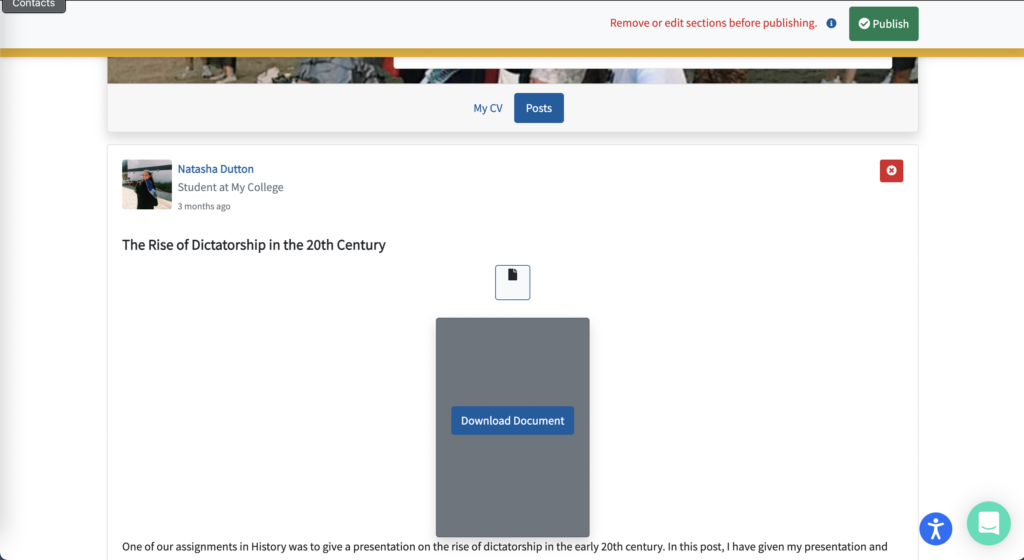 Next, click into your posts feed. Go through and remove the posts you do not wish to share.
Next, click into your posts feed. Go through and remove the posts you do not wish to share.
Finally, click “Publish”.
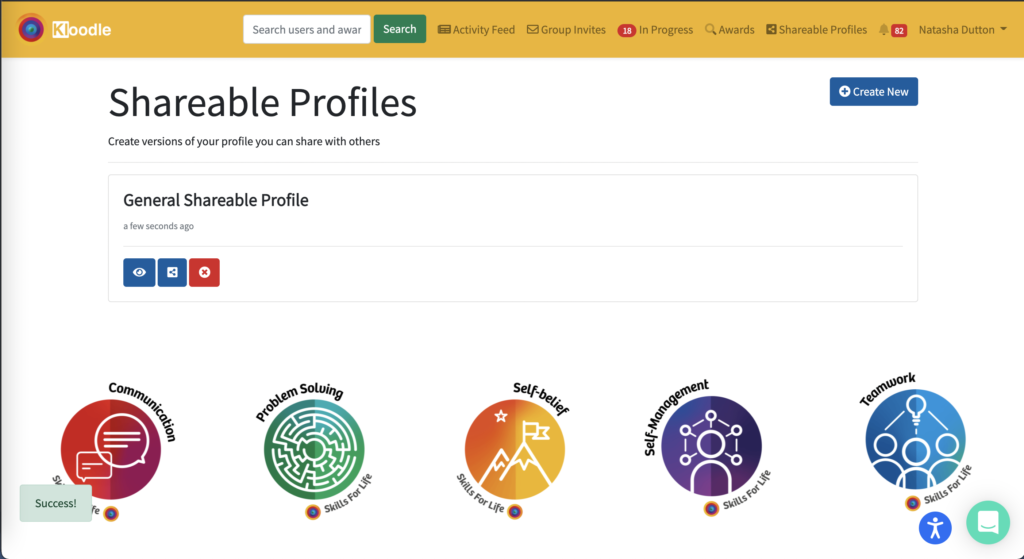 You will have created the first shareable version of your Kloodle profile. Clicking on the share icon will provide you with a shareable link to your Kloodle profile. You can copy this and provide it to anyone you wish to share your profile with. Only people with the link can see the profile.
You will have created the first shareable version of your Kloodle profile. Clicking on the share icon will provide you with a shareable link to your Kloodle profile. You can copy this and provide it to anyone you wish to share your profile with. Only people with the link can see the profile.
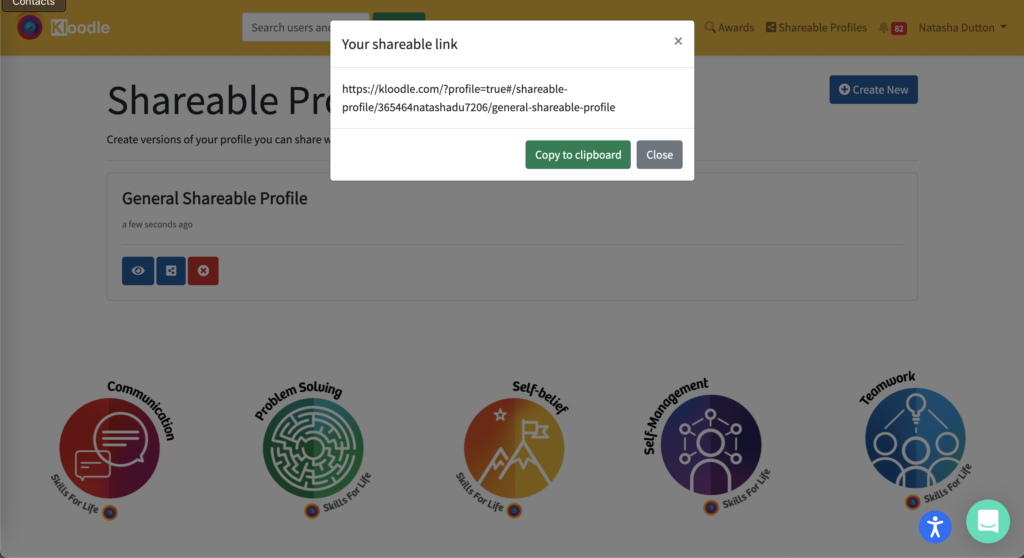
If you wish to disable access to your shareable profile, simply delete it.
View Example
Making a great Shareable Profile
The strength of your shareable profile is now a function of the content you post. To make a really strong profile, post regularly to Kloodle. Here’s a list of things you should post to your profile.
1) How playing (Insert sport) has developed my teamwork skills
2) What I learned through attending (Insert company)’s career talk
3) Why I want to apply to study (Insert Course)
4) How group work has helped with my communication skills
5) Why volunteering has taught me the value of work ethic
6) The importance of being organised during revision
7) How sport has helped me to handle pressure
8) How the college production has helped with my public speaking
9) How the student council has improved my negotiation skills
10) What I learned from my College President election campaign
11) Why learning outside of college is so important
12) How working at Tesco has helped me handle complaints
13) The importance of listening well
14) What I’ve learned about sales during work experience
15) Why I want to do an apprenticeship as opposed to university
16) How I demonstrated resilience during the London Marathon
17) Why written communication is so important
18) The 5 books that have taught me the most
19) How we raised £1,000 for charity
20) How I started my own business whilst at college
21) Why studying science enables me to think critically
22) What I learned about the working environment during work experience
23) Why teamwork is so important in an office
24) How do you prioritise your revision?
25) My proudest achievement and why
26) What I’ve learned about time management during my A Levels
27) The reasons why I want to become a (Insert Career Name)
28) What I like about (Insert organisation you want to work for)
29) The most important skills needed to become a (Insert Career Name Here)
30) How starting a small business whilst at college demonstrates commercial awareness

